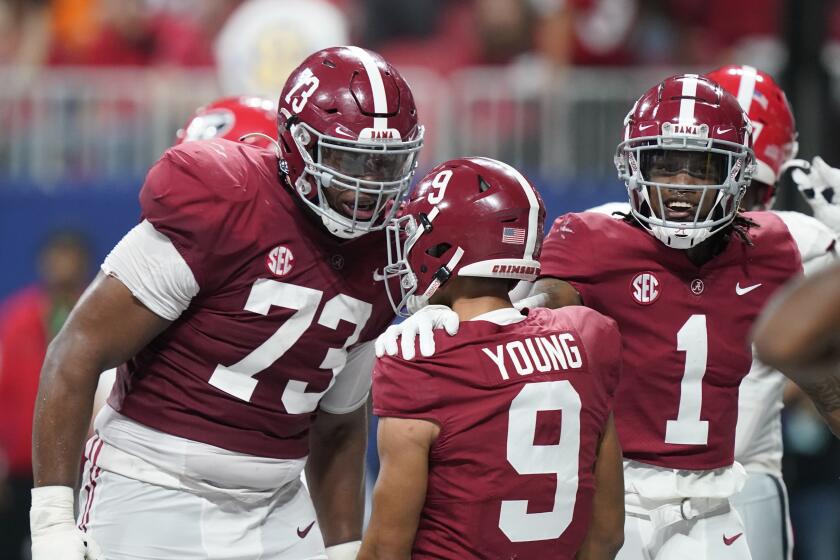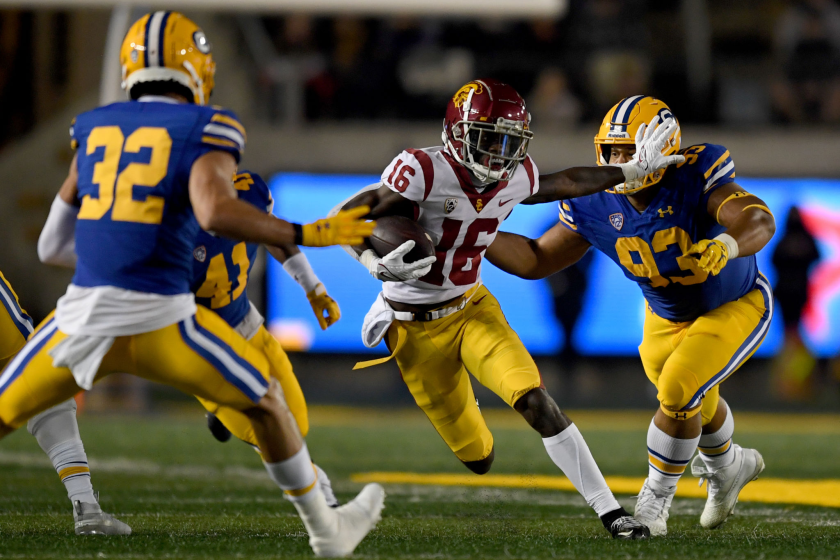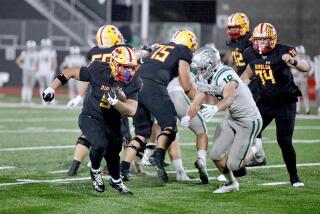Commentary: College Football Playoff committee didn’t have to fret much over its final four
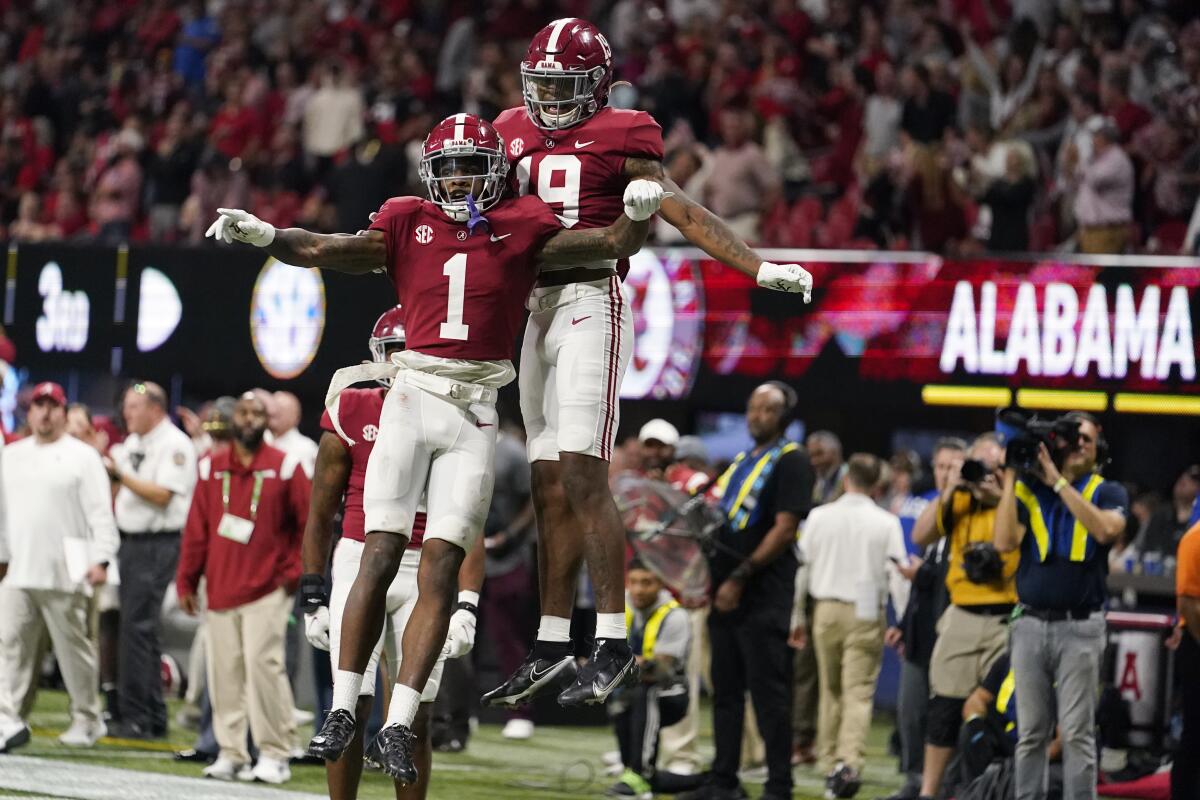
- Share via
Here are five observations on the College Football Playoff field announced Sunday featuring semifinals of Alabama-Cincinnati in the Cotton Bowl and Michigan-Georgia in the Orange Bowl.
1. Oklahoma State running back Dezmon Jackson’s failure to get the ball across the goal line in the Big 12 Conference championship game made the playoff selection committee’s life easy.
If the Cowboys had beaten Baylor to finish 12-1 as Big 12 champs — even though they were not convincing in doing so — there would have been immense pressure to place a Power Five conference champion as the No. 4 team instead of unbeaten Cincinnati from the Group of Five.
Politics really could have gotten in the way, because I don’t think many people actually believe Oklahoma State is a better team than Cincinnati.
Thanks to a couple of amazing goal-line stands by Dave Aranda’s Baylor defense, the committee had a ready-made field of four teams, especially because No. 5 Notre Dame’s one loss was to the Bearcats in South Bend by 11 points.
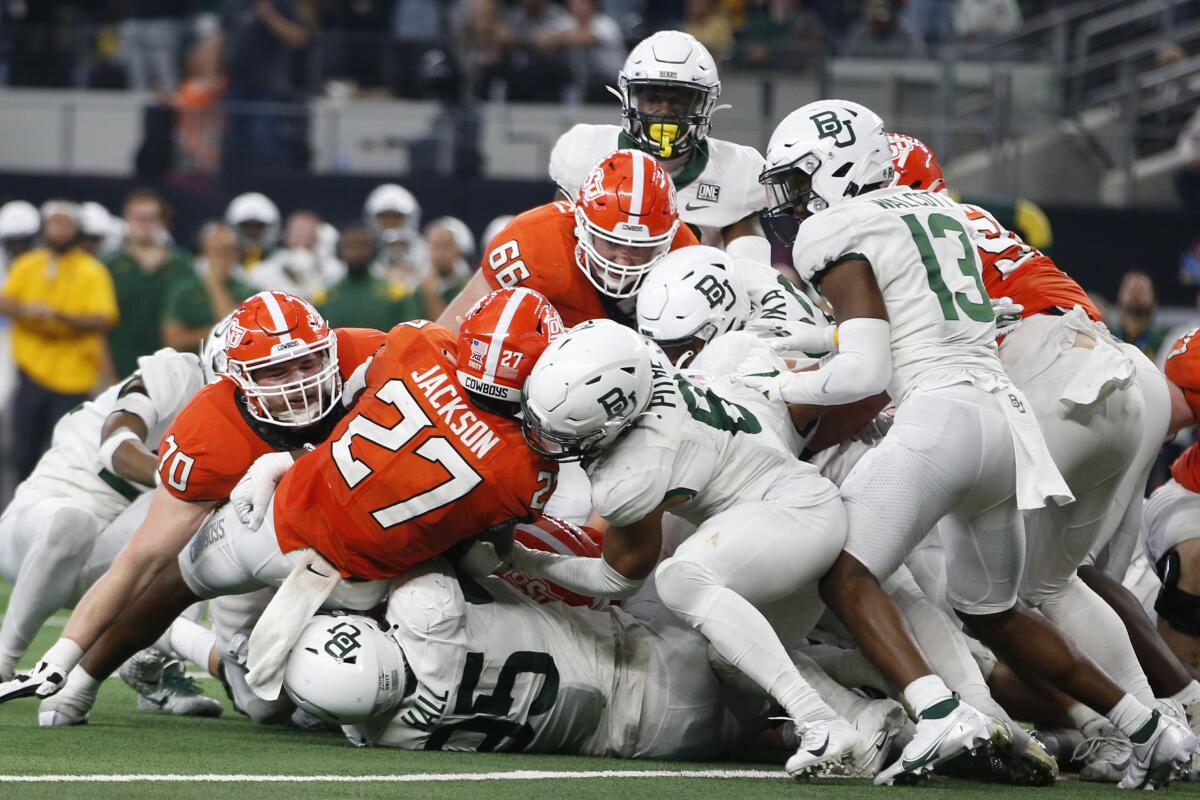
The only question the committee had to answer was whether to avoid an Alabama-Georgia rematch in the semis (but set up the likely rematch in what would be an unappealing national championship game to many fans outside of the Southeast) or get the rematch out of the way early and let Michigan and Cincinnati duke it out for the Midwest’s title game representative.
Maybe this is my Michigan alum lens, but I think most of the country would prefer a national championship game that features teams from different conferences even if that means a semifinal game that doesn’t feel fresh. Plus, the Wolverines are a major ratings draw, but the committee did not do them any favors with a Jan. 10 pairing with Georgia in the semifinal.
The College Football Playoff is set and it is historic: Cincinnati will play Alabama in the Cotton Bowl and Michigan will face Georgia in the Orange Bowl.
2. The Bulldogs will be a very tough draw for Michigan.
We shouldn’t have been surprised that Alabama’s offense moved the ball so easily against Georgia’s vaunted defense, because the Bulldogs did not face one adept passing offense all year in rolling to 12-0. The Crimson Tide exposed Georgia, but Michigan is not built to win by throwing the ball and spreading it around to speedy receivers on the outside. Michigan quarterback Cade McNamara can certainly hurt a defense downfield, but usually that has been set up by a bruising, no-nonsense downhill running game.
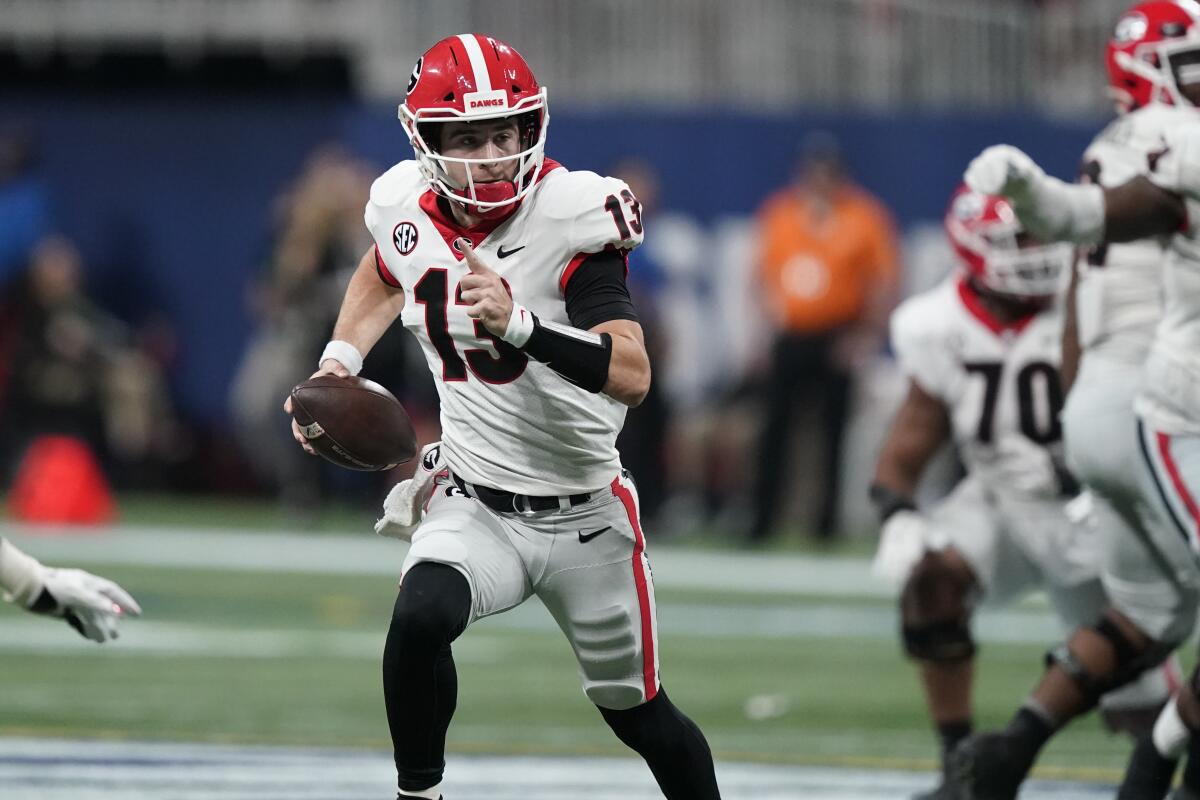
The Bulldogs’ massive defensive tackle Jordan Davis is a hole-plugger extraordinaire, and Michigan is likely to find little room for Hassan Haskins.
Michigan offensive coordinator Josh Gattis, a Broyles Award finalist, will have to be creative in getting the ball to the edges, and McNamara will have to have success with high-percentage passes on first downs for the Wolverines to keep their momentum going from consecutive 42-point performances.
3. Although Michigan could struggle more than expected with Georgia, Cincinnati has a pretty good chance to hang with Alabama.
The Bearcats’ reward for making history as the first Group of Five team to make the playoff? A match with Nick Saban’s Alabama dynasty. Cincinnati will be a two-touchdown underdog for good reason, but I would pick the Bearcats to cover that spread (if you’re into that sort of thing) and put a scare into the Crimson Tide, who have let lesser teams than Cincinnati take them to the edge of defeat numerous times this year.
Alabama features a balanced attack, but the Crimson Tide are particularly dangerous when blazing receiver Jameson Williams gets loose in the secondary as he did against Georgia on Saturday. But Alabama won’t have its second option, John Metchie, available because of injury, allowing the Bearcats’ gifted cornerbacks to focus their attention on Williams.
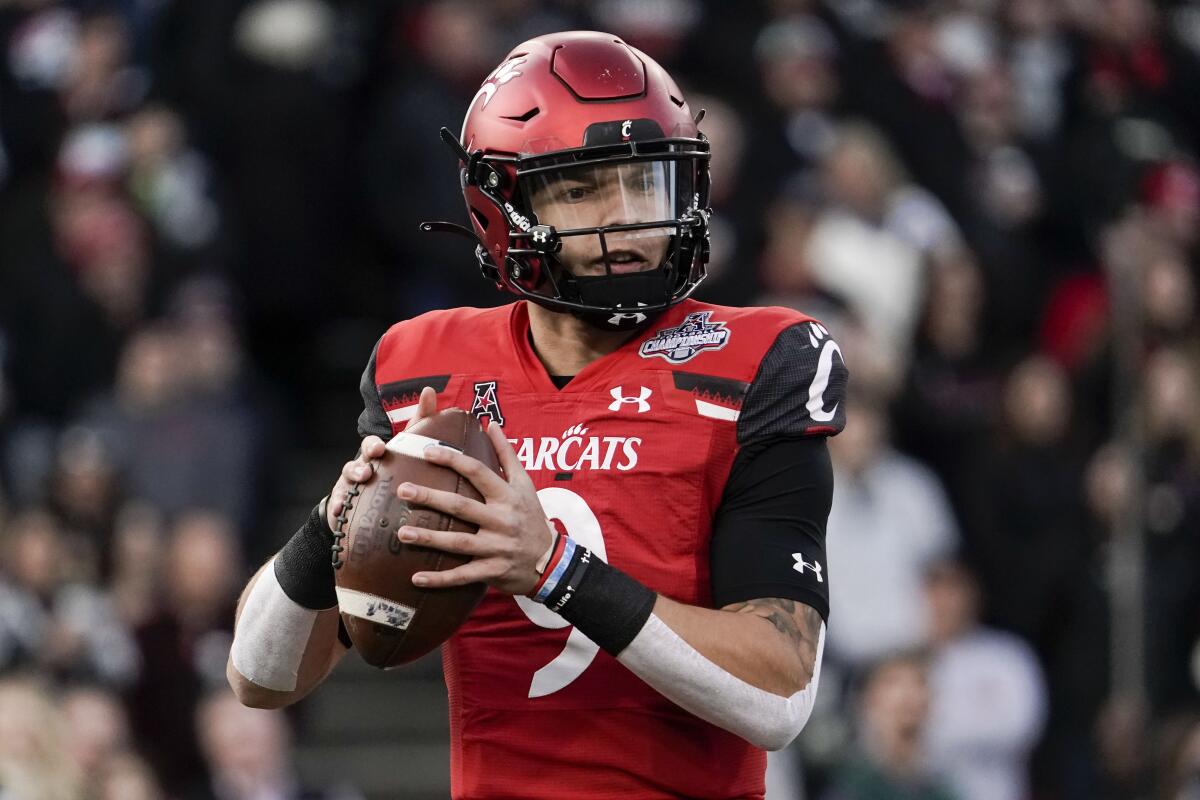
Cincinnati quarterback Desmond Ridder is mobile and crafty and should keep the chains moving with the help of Alabama transfer running back Jerome Ford, one of the best backs in the nation.
One thing is for sure: Cincinnati coach Luke Fickell will have his team mentally and emotionally primed to pull the upset.
4. Fickell’s faith in what he is building at Cincinnati paid off.
Fickell proved that he can compete for a national championship from Cincinnati, that he did not need to leave for USC, Louisiana State, Florida or Oklahoma to go after the big prize. With the Bearcats moving to the Big 12, which is likely to retain its Power Five standing going forward, Fickell can afford to stay at Cincinnati and contentedly wait for Ohio State, his alma mater, to open someday.
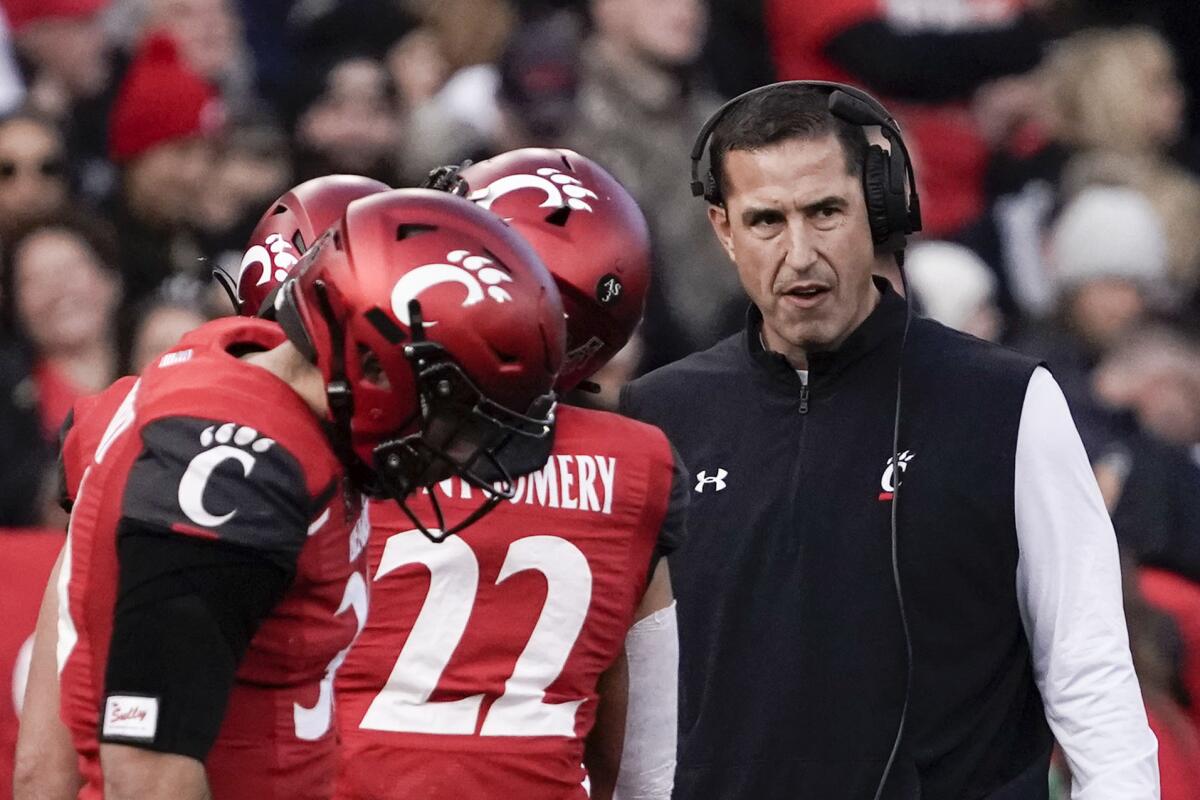
5. Utah is a great example of the type of team that would benefit from the 12-team playoff format.
The Utes finished the season on an absolute tear, winning their first Pac-12 championship with a 10-3 record after dominating Oregon twice in three weeks. Think Alabama or Michigan would want to see Utah in the playoff right now?
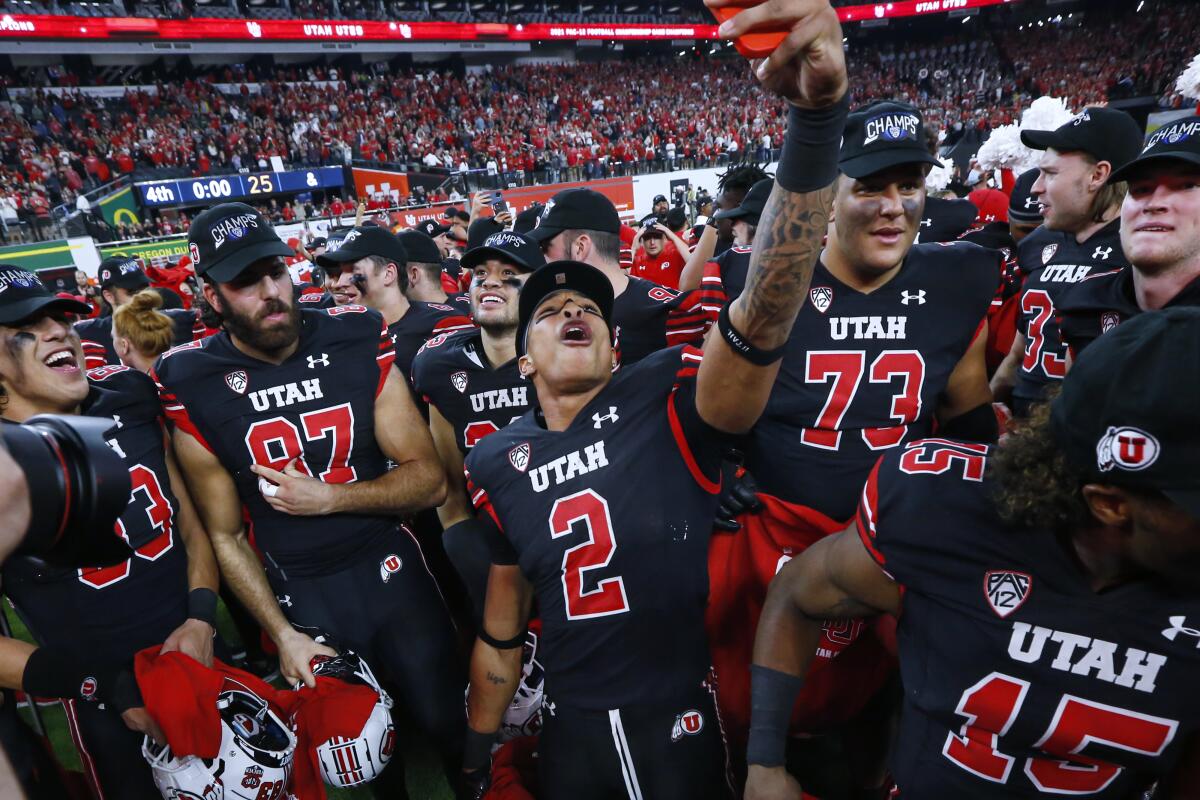
Kyle Whittingham’s group lost to Brigham Young and San Diego State in September, and, in the current format, that ended their hopes of playing for a national championship in December.
There are downsides to expanding the playoff, sure, but an obvious upside is it allows for teams to develop and become championship-worthy late — like every other sport.
USC football closed out its unremarkable season with a 24-14 loss to California in the final game before Lincoln Riley takes control as coach.
More to Read
Go beyond the scoreboard
Get the latest on L.A.'s teams in the daily Sports Report newsletter.
You may occasionally receive promotional content from the Los Angeles Times.

